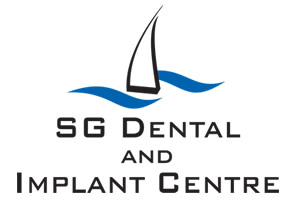Bone Loss In The Jaw
What causes thinning of the bone in the jaw?
Some patients who come to Mike Allen’s Dental Practice to have a dental implant placed may be told that they need a bone graft before the procedure can take place. For some people this is necessary in order for there to be sufficient bone into which to place the implant securely, giving it the best chance of long term survival.
Often, these patients are surprised to hear this news, and probably were even unaware that bone loss could occur at all. In today’s blog, we take a look at three possible reasons for bone loss in the jaw.
Periodontitis
Gum disease is relatively easily treated in its early stages, but, if not detected and is allowed to advance untreated, it can eventually result in periodontitis. This form of gum disease attacks not only the gums, but also the bone in which the teeth are held. This causes the bone to gradually thin, often causing teeth to become unstable and even fall out. In some situations, periodontitis can be managed with deep cleans and ongoing treatment performed by a periodontist. Prevention, however, is both preferable and relatively straightforward with good oral care, and our Burton hygienist can offer advice and treatment to prevent it from reaching this stage.
Tooth extraction
When a tooth is extracted, it will cause gradual bone loss over a period of time (see below). Even in the immediate aftermath of an extraction though, some bone can be lost straight away. Although many believe that we ‘pull’ a tooth out, the fact is that a tooth is extracted by pressure being put on it and maneuvered until it is released from the bone. This very occasionally results in as small part of the bone coming away as the tooth is finally removed from the socket.
Tooth loss
Any tooth loss, whether extraction, falling out or being knocked out in an accident will eventually cause the bone to deteriorate in that area. This is due to the bone ‘recognising’ that it no longer has to fulfil the role of holding the tooth in place, and so gradually thins away. It is this process which is often responsible for dentures becoming unstable, and not the dentures themselves, as some believe. There are a number of other potential causes of bone loss, including osteomyelitis which is a bacterial infection of the bone and bone marrow in the jaw. This is relatively rare though, and the previous three above are the main reasons for this particular issue.
If you have experienced bone loss, a bone graft at our Burton family dental practice may well be an option to give you a great chance of having a secure and long lasting dental implant to replace a missing tooth.
For more information, or to arrange a consultation, please call Mike Allen’s Dental Practice on 01283 845345.
